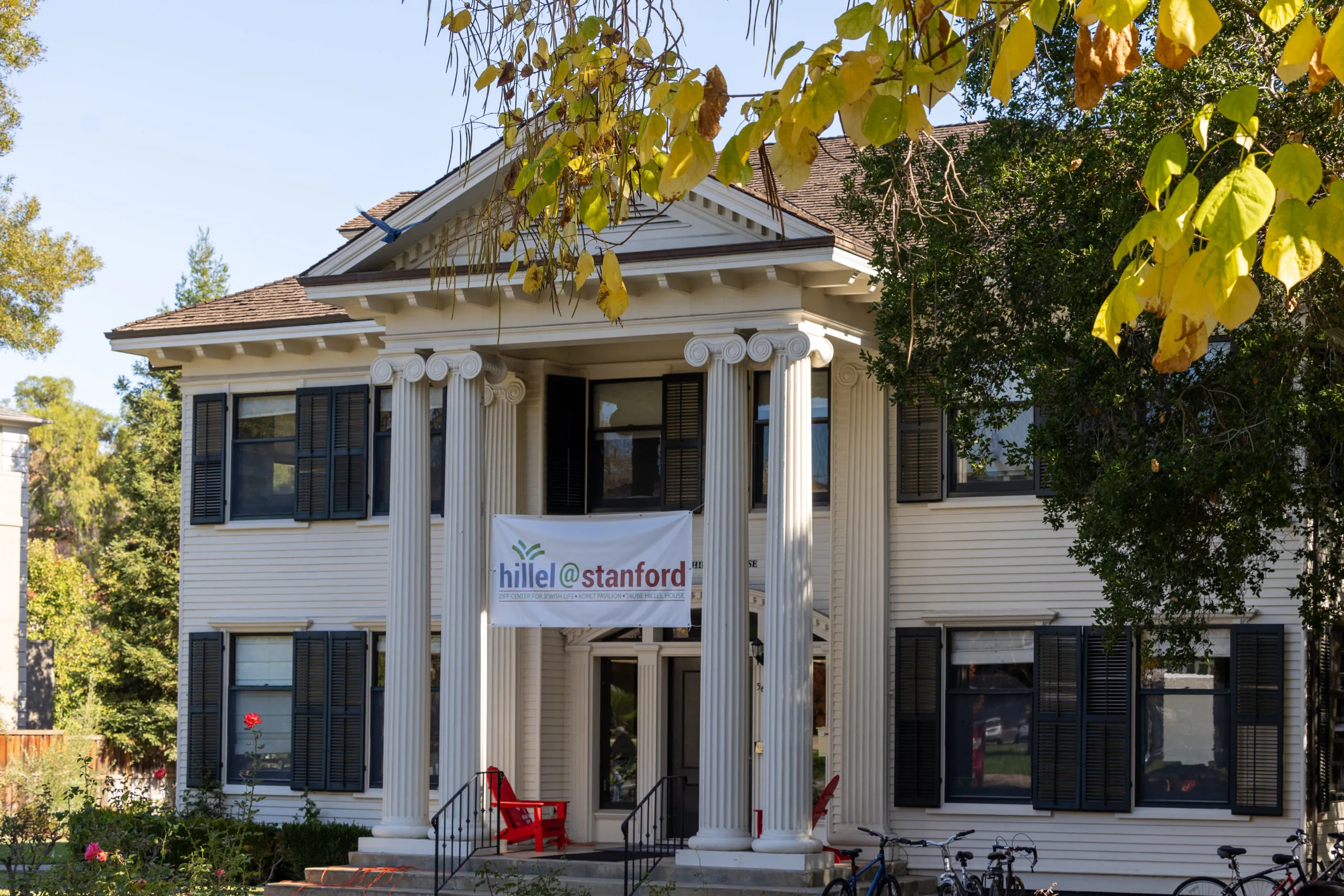Over 100 members of the Stanford community gathered to celebrate at a Passover Shabbat dinner organized by Hillel on Friday, with Stanford president Marc Tessier-Lavigne delivering remarks in a show of support of the Jewish community.
The dinner, held at Hillel, took place days after an incident in which the mezuzah of a Jewish undergraduate student was broken and removed from their dorm room door. This incident is one in a series of antisemitic events that have happened on Stanford campus this year.
Rabbi Jessica Kirschner, currently the Stanford Hillel executive director, sent an email to members of the Stanford Jewish community in response to the incident in which she affirmed that “we are a strong and resilient people, and part of how we face challenges is by coming together.” Later in the email, she referred to the dinner as “a great opportunity to share your reality — the highs and lows — as a Jewish student on campus with an important campus decision-maker and culture-setter.”
Those in attendance at Friday’s dinner were primarily students involved in different Jewish community spaces on campus, such as the Jewish Students Association (JSA), Jewish Business Students Association (JBSA) and the Jewish fraternity Alpha Epsilon Pi (AEPi).
Tessier-Lavigne began his remarks by saying of him and his wife, who was also in attendance, “We’re especially privileged to be here during Passover. We remember the freeing of the Israelites from slavery in ancient Egypt. It’s a tale of faith and community, triumph over adversity, and those are themes which are very timely today.”
Themes of celebration, triumph and diversity were echoed throughout the delivery of his remarks. He also brought attention to the series of antisemitic incidents on campus, referring to the incident earlier in the week and a separate instance of a Jewish undergraduate’s door being vandalized with antisemitic drawings.
“I want to make it very clear that we will not tolerate antisemitism and the symbols of anti-semitism here on campus,” Tessier-Lavigne said. “It is something we need to eradicate.”
Tessier-Lavigne directly mentioned Hillel and the JSA for their roles in enriching Stanford as a whole. He characterized himself and the university administration more broadly as being “especially thankful to have a strong Hillel and strong Jewish Student Association who build community, connection and a sense of belonging who enrich our entire university community as well.”
Paloma Aisenberg ’23 said that this show of support from Tessier-Lavigne and his presence at the event resonated with her, especially in the wake of antisemitic incidents on campus.
“It’s really important to know that the administration cares and that they’re here for all of their students,” she said. “It’s just so important that MTL comes and shows up and supports us and all of the beautiful and diverse and amazing communities across Stanford’s campus.”
Tessier-Lavigne engaged in dialogue with numerous people present. Kirschner says that she hoped this would “decrease the distance between the highest levels of administration at the university and the day-to-day lived experiences of students.”
“One of the things I’ve heard from students over the last few years, particularly as issues of antisemitism, both in the culture more broadly and in our experience here directly on campus, have increased, [are concerns] about not being seen,” Kirschner said.
In celebrating Passover after a series of antisemitic events, Aisenberg reflected on the holiday, centering its celebratory and supportive nature.
“Passover is a holiday of celebrating freedom, freedom from being slaves in Egypt, and it’s a joyous holiday,” Aisenberg said. “It’s a celebration. It’s remembering to stand up for what you believe in, for what’s right, standing up for others, yourself, your community and other communities.”
About the celebration of Passover more deeply, Kirschner said, “It is an exercise in storytelling and collective storytelling. In figuring out how to engage people in an ancient experience as if it was something that we were living through this moment, that’s an incredible thing to be able to do.”
